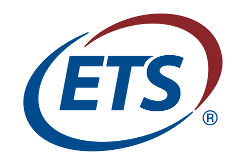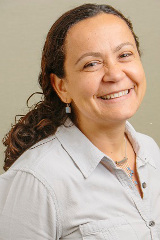

| Main |
| Proceedings |
| Keynote Speakers |
| Best Paper Awards |
| Instructions for Presenters |
| Schedule |
| Special Sessions |
| Registration |
| Venue and Travel |
| Call for Papers |
| Submissions |
| Important Dates |
| Committees |
| Sponsor the Conference |
| Contact |
| Organized by: |
 |
| Sponsored by: |

|

|

|

|

|

|

|
| In cooperation with: |
| ACL |
ISCA |
| AAAI |

Educational discourse is an important area for impact, which is especially timely given recent attention given to online education. In this talk I will first present a theoretical account of the complex interplay between written or oral discourse, individual cognitive processes, and external guidance in Computer-Supportec Collaborative Learning (CSCL) environments. Based on the Script Theory of Guidance I will analyze how cognitive configurations shape discussions, and how participation in discussions may lead to re-configuration of the participating individuals’ cognition. Second, I will give an overview of studies demonstrating the instructional value of specific types of discussion contributions, namely transactive contributions. I will finally elaborate on ways in which transactive contributions to discourse can be facilitated through external guidance, and how technologies may play an important role both in research and in instruction.
Frank Fischer holds master’s and doctoral degrees in Psychology. He was an assistant professor for Applied Cognitive Psychology and Media Psychology at the University of Tubingen and held a professorship for Instructional Psychology at the University of Erfurt. He was an associate professor for Research on Learning and Instruction at the University of Tubingen and at the Knowledge Media Research Center. Since October 2006, he has been a full professor of Educational Science and Educational Psychology at the University of Munich. He served as Dean of Faculty. He is the speaker of the Munich Center of the Learning Sciences, an interdisciplinary collaboration of more than 30 research groups focusing on advancing research on learning “from cortex to community”. He was President of the International Society of the Learning Sciences. His research focuses on scaffolding and guidance for collaborative learning, as well as inquiry and simulation-based learning. Central questions are how discussion, cognition, and instruction interact in technology-enhanced learning environments, and how characteristics of the discussion are associated with the advancement of knowledge and skills of collaborative learners. He serves on the editorial board of several scholarly journals, including Learning & Instruction, Journal of the Learning Sciences, and the International Journal of Computer-Supported Collaborative learning. He is an incoming associate editor for the American Educational Research Journal. He has published more than 100 articles and chapters, and co-edited 6 books and special issues of scientific journals.

Following an upsurge in mobile device usage and improvements in speech recognition performance, multiple virtual personal assistant systems have emerged, and have been widely adopted by users. While these assistants proved to be beneficial, their usage has been limited to certain scenarios and domains, with underlying language understanding models that have been finely tuned by the builders.
Simultaneously, there have been several recent advancements in semantic web knowledge graphs especially used for basic question answering, efforts for integrating statistical information on these graphs, graph-based generic semantic representations and parsers, all providing opportunities for open domain spoken language understanding.
In this talk, I plan to summarize recent work on these areas, focusing on their connection, as a promise for wide coverage spoken language understanding in conversational systems, while at the same time investigating what is still lacking for natural human-machine interactions and related challenges.
Dilek Hakkani-Tur is a principal researcher at Microsoft Research. Prior to joining Microsoft, she was a senior researcher at the International Computer Science Institute (ICSI) (2006-2010) and a senior technical staff member at AT&T Labs-Research (2001-2005). She received her BSc degree from Middle East Technical University, in 1994, and MSc and PhD degrees from Bilkent University, in Computer Engineering, in 1996 and 2000, respectively.
Her research interests include natural language and speech processing, spoken dialog systems, and machine learning for language processing. She has over 40 patents that were granted and co-authored more than 150 papers in these areas. She is the recipient of three best paper awards for her work on active learning, from IEEE Signal Processing Society, ISCA and EURASIP. She was an associate editor of IEEE Transactions on Audio, Speech and Language Processing (2005-2008), an elected member of the IEEE Speech and Language Technical Committee (2009-2014), an area editor for speech and language processing for Elsevier’s Digital Signal Processing Journal and IEEE Signal Processing Letters (2011-2013). She is a Fellow of the IEEE and ISCA.
Last update: July 4, 2015